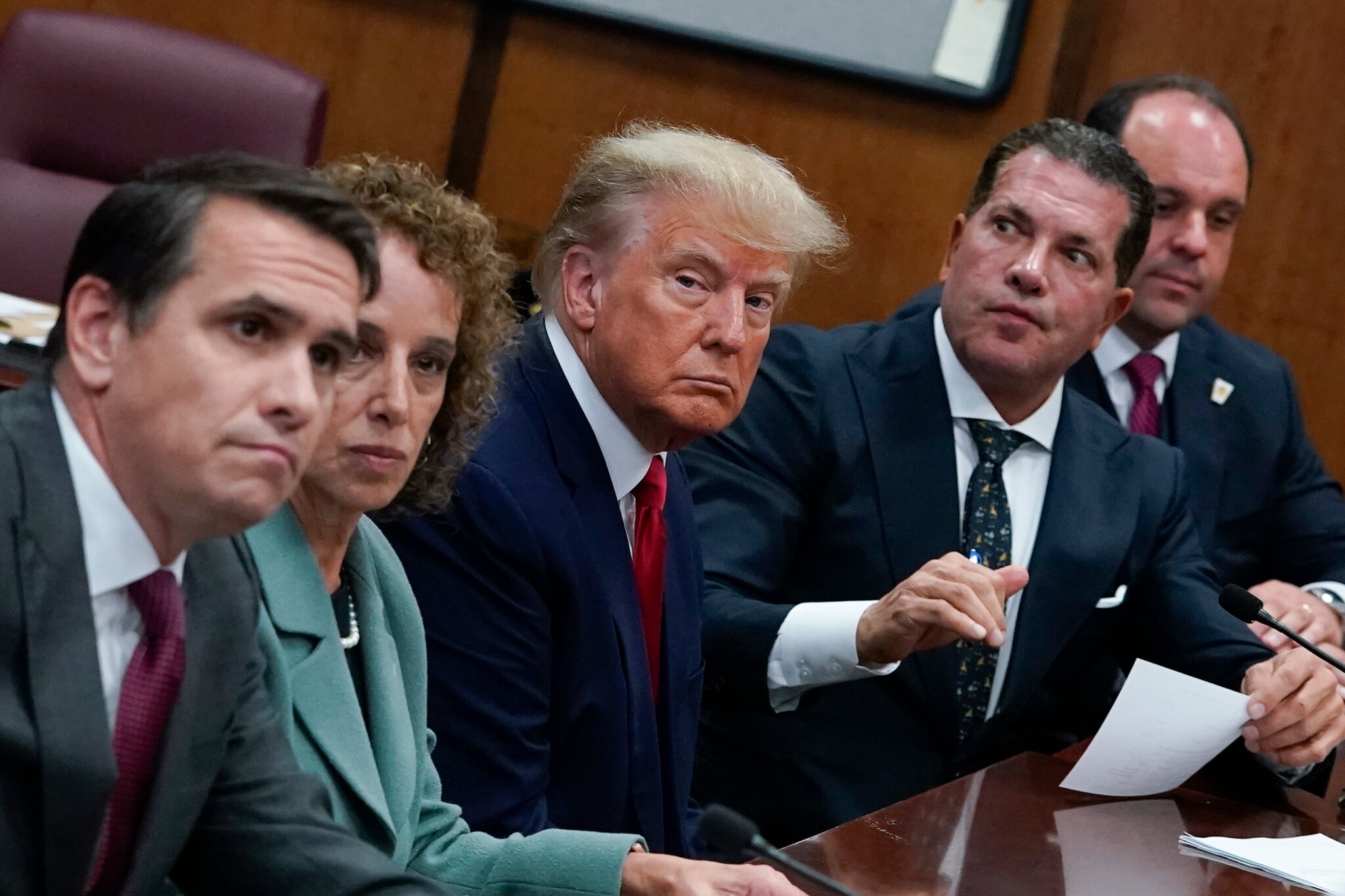Henry Barber, a Republican National Committee (RNC) member from Mississippi, is proposing two resolutions aimed at ensuring neutrality within the RNC during the presidential primary process and preventing the committee from covering legal expenses for any political candidate.
The move is seen as an attempt to safeguard the integrity of the primary process while former President Donald Trump remains a dominant figure in the early GOP contests and has significant legal financial burdens.
The first resolution calls for the RNC to refrain from engaging in any collaborative fundraising efforts with Trump’s campaign or any work directly benefiting him until he secures the party’s nomination by winning the required 1,215 delegates.
RNC Members With Trump (Credits: The Hill)
This measure seeks to ensure that the RNC maintains impartiality throughout the primary season, especially as Trump continues to lead in the primaries and former South Carolina Governor Nikki Haley remains in the race, pledging to continue her campaign despite potential setbacks.
The second resolution focuses on the RNC’s financial expenditures, specifically aiming to restrict the committee from using its resources to pay legal fees for any candidates, including Trump, who is currently facing over $400 million in payments due to recent legal defeats.
This proposal addresses concerns among some Republicans regarding the potential use of RNC funds to alleviate Trump’s legal financial pressures.
Trump’s influence within the RNC is also highlighted by his endorsements for key positions within the committee, including Michael Whatley for RNC Chair and Chris LaCivita for Chief Operating Officer, as well as nominating Lara Trump for co-chair.
Lara Trump’s comments suggesting that RNC paying Trump’s legal fees would be supported by voters have stirred further debate on the use of party resources.
These resolutions, set to be discussed at the RNC’s March meeting, represent a critical juncture for the committee as it navigates the complexities of supporting a leading but controversial figure within the party while maintaining a fair and unbiased primary process.
